Could Spray Foam Insulation Solutions Be the Best Investment in Your Home’s Energy Efficiency?
Energy efficiency is one of the most important factors influencing both home comfort and long-term savings. The U.S. Department of Energy reports that air leaks account for up to 40% of a home’s heating and cooling loss, while homeowners who upgrade insulation can cut annual energy costs by 15–25%. In Raleigh, NC, where seasonal temperature swings place added strain on HVAC systems, investing in better insulation often pays for itself in reduced bills and increased property value.
Among the many options available, Spray Foam Insulation Experts stand out for their ability to combine air sealing, moisture resistance, and durability. Unlike fiberglass or cellulose, spray foam expands to fill gaps and create a tight envelope that protects against both energy loss and outside pollutants. This makes it one of the strongest candidates for homeowners evaluating energy-saving upgrades.
Why Spray Foam Insulation Solutions Deliver Strong Energy Results
Spray foam is more than just another insulation material—it is both an insulator and an air barrier. This dual function makes it more effective at preserving indoor temperatures than traditional insulation methods.
Air Seal Solutions for Energy Control
Gaps around doors, windows, and wall cavities allow heated or cooled air to escape. Spray foam expands during application, sealing off even the smallest cracks, which limits energy waste and reduces utility costs.
Moisture and Humidity Resistance
Raleigh’s climate often exposes homes to both summer humidity and winter dampness. Closed-cell spray foam provides moisture resistance that prevents mold, rot, and indoor air quality concerns.
Consistent R-Value Over Time
Fiberglass and cellulose often lose effectiveness when compressed or exposed to moisture. Spray foam maintains a stable R-value for decades, making it a reliable long-term energy-saving insulation.
Comparing Spray Foam With Other Building Insulation Options
The performance of insulation is typically measured by its R-value, sealing ability, and resistance to environmental stressors. When compared, spray foam consistently provides more complete coverage and longer durability.
| Insulation Type | Average Lifespan | Air Seal Quality | Moisture Resistance | Energy Efficiency Impact |
|---|---|---|---|---|
| Fiberglass Batts | 10–15 years | Low | Poor | Moderate |
| Cellulose | 15–20 years | Low–Medium | Low | Moderate |
| Spray Foam Insulation Solutions | 25+ years | High | Excellent | High |
This table highlights why foam insulation value remains strong across decades, especially for property owners looking at long-term returns on investment.
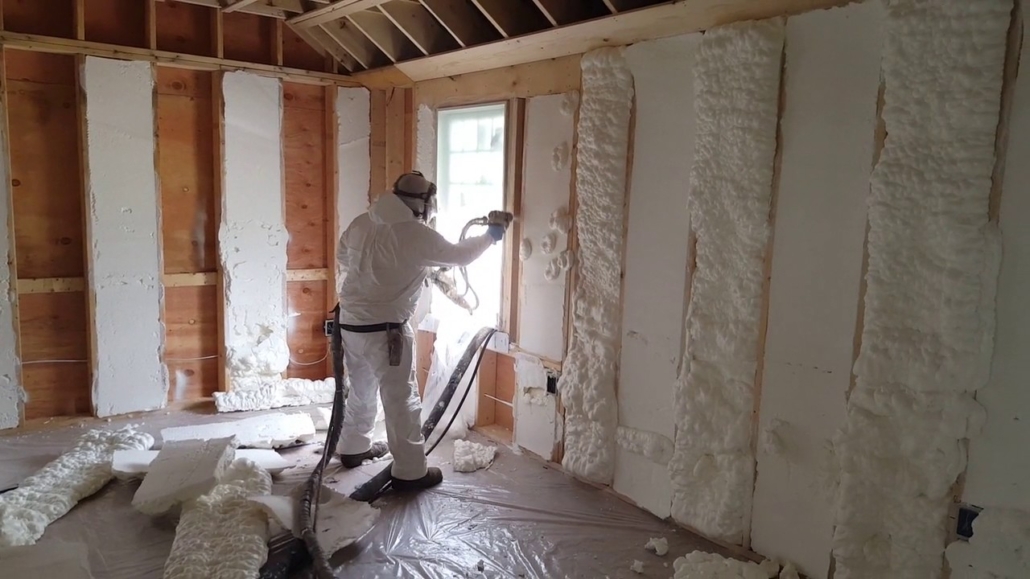
The Role of Spray Foam in Home Comfort Improvement
Energy efficiency isn’t just about utility savings. Comfort levels also improve when insulation creates consistent indoor conditions.
Temperature Stability
By reducing drafts and preventing air leakage, spray foam keeps indoor temperatures balanced, eliminating hot and cold spots in different rooms.
Indoor Air Quality Benefits
Sealed walls, attics, and crawl spaces prevent outside dust, pollen, and allergens from entering living areas. This contributes to healthier indoor air and a cleaner breathing environment.
Reduced Noise Transfer
Wall foam insulation and attic foam options provide sound-dampening qualities, making homes quieter and more private.
Where Spray Foam Insulation Delivers the Best Results
Not every part of a home loses energy in the same way. Spray foam insulation can be targeted for maximum performance improvements.
Attic Foam Options
Attics are often the largest source of energy loss in residential properties. Applying spray foam to the roof deck or attic floors prevents both heat rise and seasonal air leakage.
Wall Foam Insulation
Walls without proper insulation let conditioned air escape while letting outdoor temperatures in. Spray foam fills wall cavities completely, creating a thermal and air barrier in one step.
Crawl Space Foam Insulation
Crawl spaces often hold moisture and allow drafts to rise through the home. Spray foam prevents damp air infiltration while helping stabilize flooring temperatures.
Foam Application Methods and Long-Term Value
Application techniques matter as much as the material itself. Raleigh property owners can choose between two main spray foam types depending on their goals.
Open-Cell Foam Applications
Open-cell foam is lightweight, flexible, and effective for sound absorption. It works best in interior wall cavities where airflow and sound control are priorities.
Closed-Cell Foam Applications
Closed-cell foam is denser, more rigid, and delivers a higher R-value per inch. It resists moisture, making it ideal for attics, crawl spaces, and exterior walls in humid climates like Raleigh.
Key Spray Foam Benefits for Raleigh Homes
Spray foam insulation offers a wide range of benefits that extend beyond just energy savings:
- Reduces utility bills through energy-saving insulation performance
- Protects structural integrity by resisting moisture and mold
- Improves indoor comfort with balanced temperatures
- Enhances property value with durable building insulation options
- Provides long-term reliability, lasting 25+ years without performance decline
Why Spray Foam Insulation Solutions Are a Smart Investment
When evaluated as a long-term energy strategy, spray foam stands out as an upgrade that delivers both immediate and lasting results. Raleigh property owners often see reduced energy costs within the first year, while the durability of the material ensures decades of reliable protection.
Unlike short-term fixes, spray foam addresses multiple problems at once—air leakage, heat loss, moisture intrusion, and indoor comfort. The combination of foam insulation value and long-lasting efficiency makes it one of the strongest building investments available today.
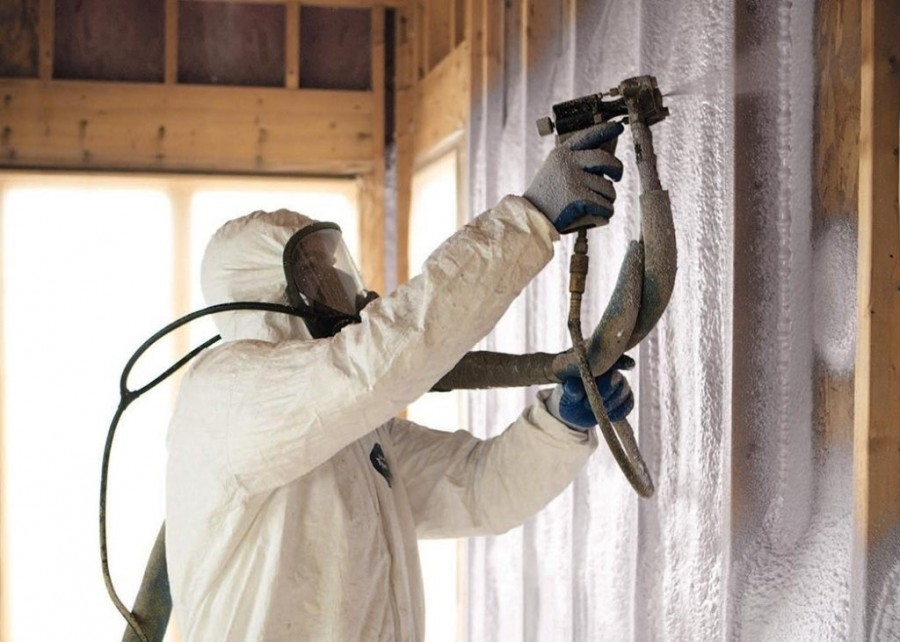
Ready to Achieve Energy-Efficient Indoor Performance?
Spray foam insulation delivers both energy savings and improved comfort for Raleigh homes and businesses. With proven results in air sealing and long-term performance, it remains one of the most effective upgrades for property efficiency.
Raleigh Excel Spray Foam Insulation provides local expertise and reliable applications for performance-driven projects.
Call (919) 301-9435 or email info@raleighexcelsprayfoam.com to schedule an evaluation today.
FAQs
How long does spray foam insulation last compared to other options?
Spray foam insulation typically lasts 25 years or more, maintaining its performance longer than fiberglass or cellulose.
Can spray foam insulation lower utility bills in Raleigh homes?
Yes. By sealing air leaks and stabilizing temperatures, spray foam reduces HVAC usage and can lower annual energy bills by 15–25%.
Is spray foam safe for indoor air quality?
Modern spray foam materials are formulated to be low in VOCs once cured, and they help block outside pollutants from entering the home.
Where should spray foam be applied for maximum efficiency?
Attics, crawl spaces, and wall cavities offer the highest return on energy savings when upgraded with spray foam.
Does spray foam add value to a property? Yes. Buyers often view homes with energy-saving insulation as more valuable due to long-term efficiency and reduced main
tenance costs.
Reviewer: With nearly a decade in the spray foam insulation field, William Harris reviewed this post and provided guidance that reflects both technical understanding and real-world marketing experience.

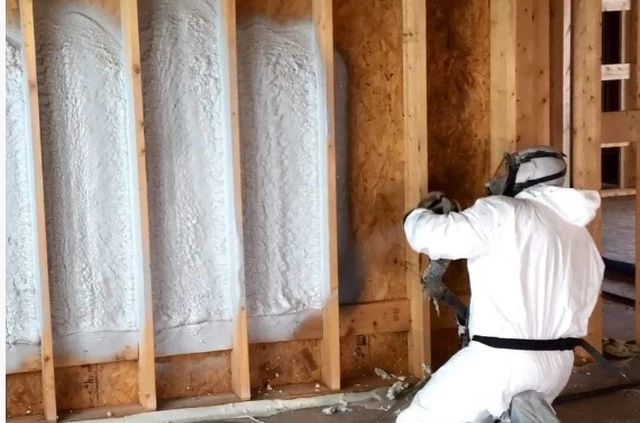

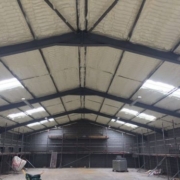
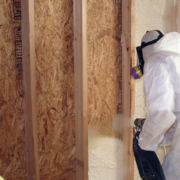
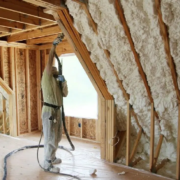
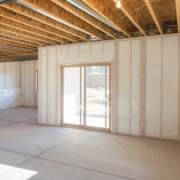
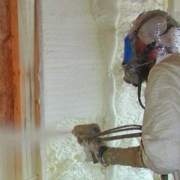

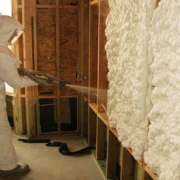

Leave a Reply
Want to join the discussion?Feel free to contribute!